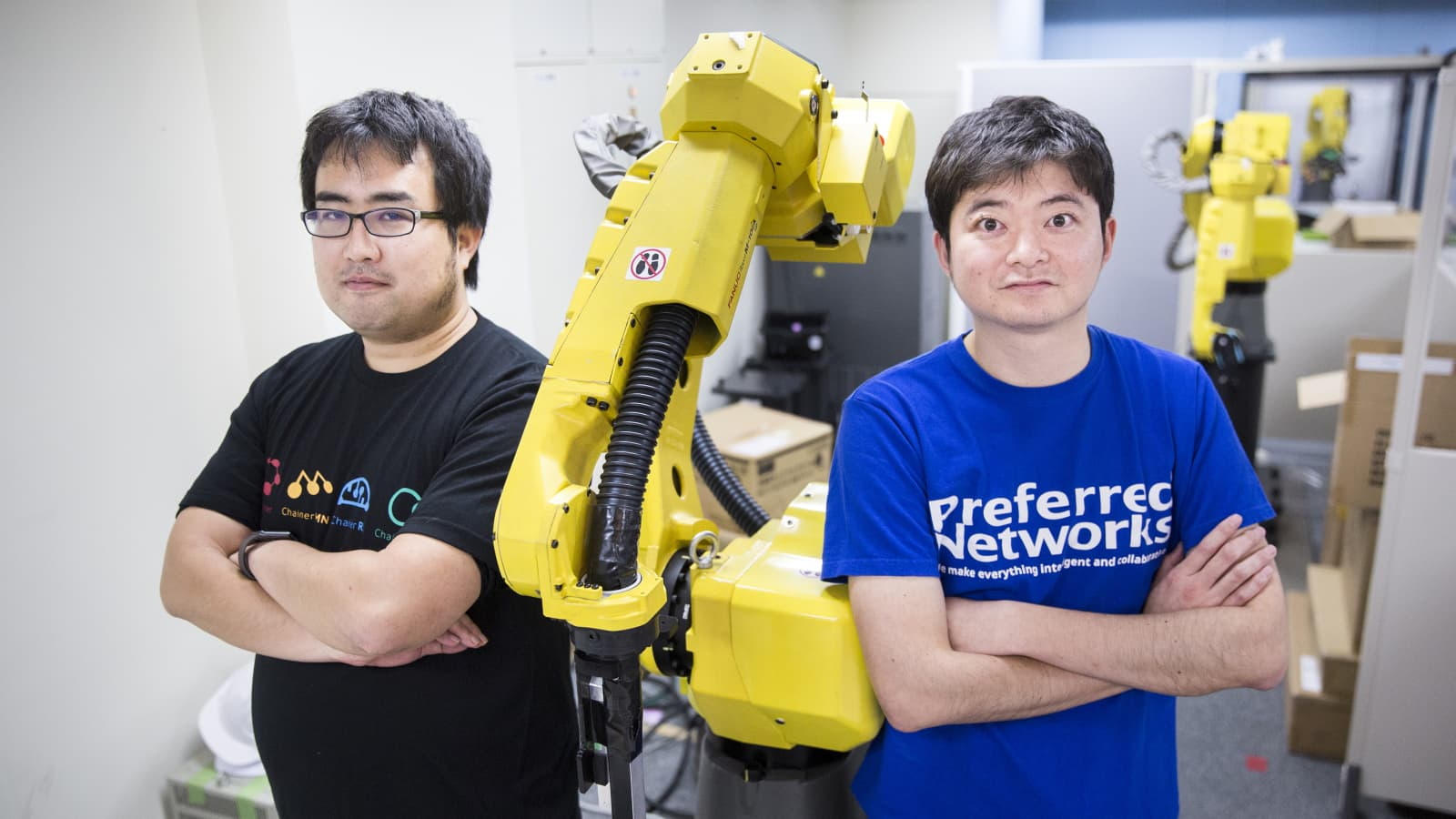
The Asian artificial intelligence ecosystem continues its remarkable acceleration, establishing itself as a formidable force in global innovation by tackling complex challenges with solutions that scale far beyond their home markets. The momentum behind these ventures is particularly compelling in how they combine cutting edge technology with deep understanding of regional needs – creating products that address uniquely Asian market dynamics while maintaining global relevance.
The following startups are our top five picks that are driving the AI revolution across the continent. Each represents a different facet of AI’s transformative potential, showcasing their diverse technological leadership emerging from the most dynamic markets.

Founded: 2016 | Headquarters: Mumbai | Sector: Healthcare AI & Medical Imaging
Co-founded by Prashant Warier and Dr. Pooja Rao, Qure.ai has built AI systems capable of interpreting medical scans – from X-rays to CT imaging – with remarkable speed and accuracy. They have transformed from a Mumbai startup into a global healthcare leader, culminating in a remarkable $65 million Series D round that validates its approach to democratizing medical diagnostics.
What sets the company apart is their focus on high-impact medical conditions where early detection saves lives. When someone has a stroke, the first 90 minutes are critical, yet many hospitals lack the expertise to quickly identify brain injuries from scans. This is where Qure.ai’s algorithms step in, helping doctors in remote clinics make decisions that would typically require a specialist in a major city.
Their technology now operates across over 90 countries and 3,000 medical facilities, making advanced diagnostic capabilities accessible in regions where radiologists remain scarce. CEO Warier notes that 25% of revenue originates from the US market, while the company simultaneously addresses critical healthcare gaps in emerging economies. With IPO plans targeting the next two years, their company exemplifies how Indian healthtech can achieve global scale while maintaining social impact.

Founded: 2014 | Headquarters: Tokyo | Sector: AI Robotics
As one of Japan’s most valuable technology unicorns, Preferred Networks stands out in the crowded AI landscape through its integrated approach to hardware and software development. They tackle what co-founder Daisuke Okanohara calls “real-world problems” – not virtual ones. Their robots don’t simply follow pre-programmed instructions; they observe, learn, and adapt.
Preferred Networks’ approach extends beyond robotics into AI infrastructure, addressing the growing concerns about AI’s energy consumption. The company’s massive 19 billion yen funding injection underscores investor confidence in its ambitious AI semiconductor strategy, which will help scale production of custom chips and advance their robotics research.
The breakthrough MN-Core™ processor architecture achieved unprecedented energy efficiency, with their MN-3 supercomputer claiming the top Green500 ranking multiple times. The fresh capital will accelerate development of next-generation AI chips and their proprietary PLaMo™ model, positioning Japan as a serious contender in the global AI infrastructure race.

Founded: 2016 | Headquarters: Seoul | Sector: AI Avatars & Video Synthesis
DeepBrain AI creates such realistic digital humans that customers sometimes forget that they are not speaking to real people. What started as a chatbot project for a Korean bank has evolved into a platform where anyone can create professional videos featuring lifelike AI avatars that speak dozens of languages with natural expressions and gestures.
The company’s AI Studios platform eliminates the traditional hassles of video production – no cameras, actors, or editing required. Users simply type their script, choose an avatar, and generate a polished video in minutes. Major banks in Korea now utilize DeepBrain avatars in their branches to assist customers with loan applications and answer frequently asked questions, providing 24/7 service without human fatigue.
Beyond customer service, the technology serves diverse usage from corporate training to news broadcasting. The company has partnerships with global tech giants like Microsoft and NVIDIA, and their recent $44 million funding round reflects growing demand for interactive digital experiences. DeepBrain AI demonstrates how synthetic media can create genuine business value through various applications and innovation.

Founded: 2015 | Headquarters: Hong Kong Science Park | Sector: Natural Language Processing
In Hong King’s bustling business districts, conversations seamlessly switch between Cantonese, Mandarin, and English – sometimes within the same sentence. Traditional voice recognition systems struggle with this linguistic complexity, but Fano Labs has made it their specialty. Born from University of Hong Kong research, the company builds AI that understands not just what people say, but how they actually speak in multilingual Asia.
CEO Miles Wen explains their unique challenge – “Traditional speech recognition tools do not operate effectively in multilingual environments” – where speakers constantly switch languages and use local dialects. Fano Labs’ systems achieve over 90% accuracy even in these complex conversations, making them invaluable for businesses operating across Asia’s diverse markets.
The company’s client roster includes major financial institutions like HSBC, Citibank, and China Mobile Hong Kong, who use Fano’s technology for customer service, compliance monitoring, and business analytics. Their recent Series B funding led by Openspace Ventures will fuel expansion across Southeast Asia, with plans to add support for Tamil, Hindi, Urdu, and Tagalog – languages representing hundreds of millions of potential users.

Founded: 2024 | Headquarters: Singapore | Sector: Financial Management
When Bhavana Ravindran worked at Visa, she watched how seamlessly customers could make payments, yet small businesses were stuck with complex and outdated financial tools that required accounting expertise just to complete basic tasks. After experiencing the pain firsthand while running her own business – where many founders spend over 15 hours weekly on finance operations – she co-founded EarlyBird AI to solve what she calls the “snap, tap, and zap” problem of accounting.
The company transforms tedious processes of bookkeeping into something as simple as taking a photo. Their AI agents can read receipts, categorize expenses, reconcile bank statements, and generate financial reports automatically. The company’s proprietary Live Ledgers™ technology processes transactions in real-time, turning raw business data into actionable financial insights without requiring any accounting knowledge from users.
This Singapore-based startup has already gained traction with partnerships including Stripe and Aspire, and recently secured backing from fintech accelerator, Tenity. EarlyBird AI represents a new approach to business finance that treats entrepreneurs like consumers, delivering the same user-friendly experience they expect from modern digital products. Their goal is to make financial management so intuitive that founders can focus on growing their businesses instead of drowning in spreadsheets.

These companies exemplify a fundamental shift in how AI creates value – not through algorithmic sophistication alone, but through contextual intelligence that addresses genuine human needs. Their success illuminates a distinctly Asian philosophy, that transformative innovations emerge from deep understanding of local constraints, cultural nuances, and market realities.
The pattern is clear: Qure.ai democratizes expert diagnosis where specialists are scarce, while Preferred Networks creates robots that navigate real human environments, not experimental conditions. DeepBrain AI forges authentic digital relationships, and Fano Labs masters the linguistic complexity of modern commerce. Finally, EarlyBird AI transforms business finance into a consumer-grade experience.
Such revolutions signal the emergence of Asia as a source of innovation paradigms rather than merely a market for Western concepts. These businesses succeed because they’ve internalized a critical insight – sustainable technology adoption requires solutions designed for real-world complexity, not laboratory perfection. Their pragmatic, contextually aware approach offers a blueprint for how AI can achieve meaningful impact at global scale.
0 Comments